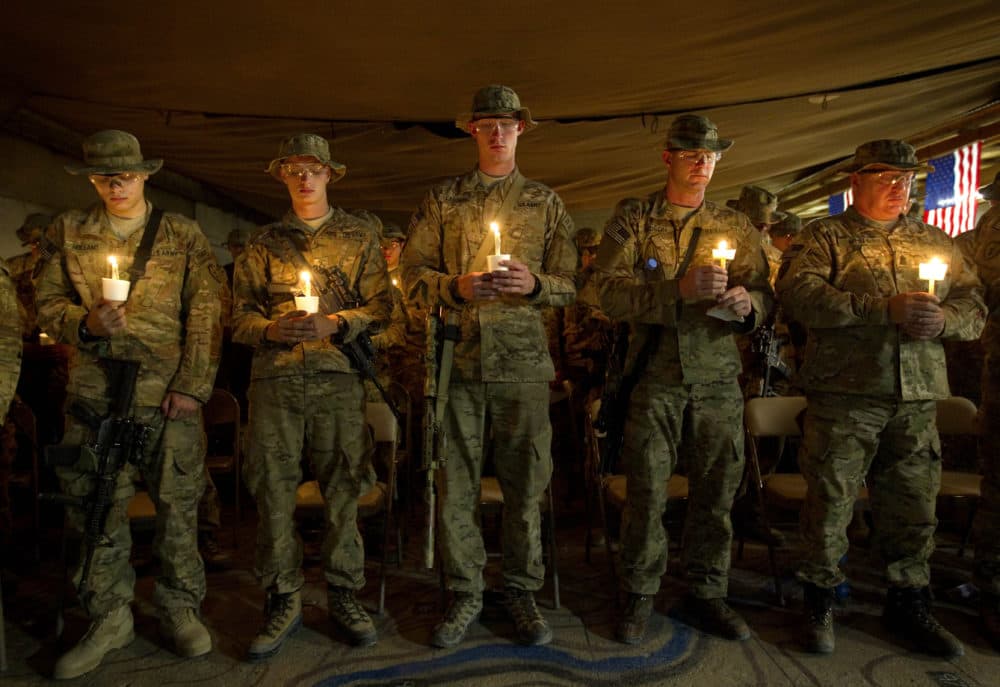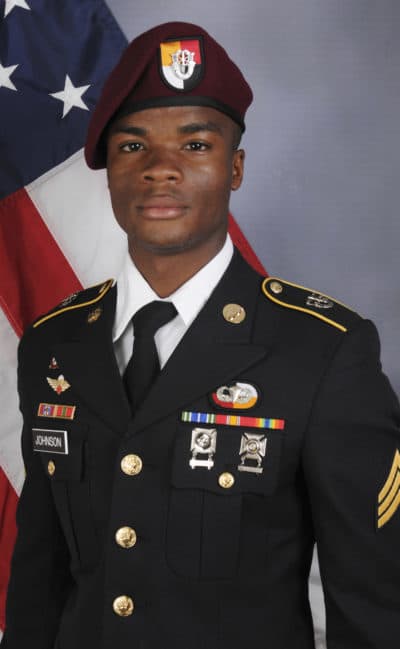Advertisement
Commentary
How little we care for the families of those killed in our wars

There is a famous, if likely apocryphal, story about Lydia Bixby, the Massachusetts mother purported to have lost five sons fighting in the Civil War who received a letter from President Lincoln. “I feel how weak and fruitless must be any word of mine which should attempt to beguile you from the grief of a loss so overwhelming,” the president wrote. The words of one of our most eloquent consolers-in-chief ooze with the man’s empathy.
This Memorial Day will be the first in 20 years that the United States is not actively fighting a ground war in Central Asia or the Middle East. Memorial Day, regardless of how most Americans observe it in practice, is an annual opportunity for sober meditation upon the sacrifices of those who have given their lives to this country. We should also take the opportunity to reflect on the role each of us plays in the civic life of this republic and in its public square, an invitation to contemplate how our actions impact those who serve.
Among the thousands of skirmishes and roadside bombs that have claimed the lives of young Americans since 2001, there is an episode of violence and loss from 2017 that sticks in my mind more acutely than most. In October of that year, Sgt. La David T. Johnson was killed in a firefight when his unit was ambushed by Islamic State-linked guerrillas in Niger.

Johnson’s case gained national attention thanks to the sitting president who, when calling his wife, Myeshia Johnson, to offer condolences, reportedly forgot Johnson’s name and said that her late husband “knew what he was getting into.” Trump went on to publicly contest the account of the bereaved. “I had a very respectful conversation with the widow of Sgt. La David Johnson, and spoke his name from beginning, without hesitation!” he tweeted. As The Atlantic’s David Graham noted at the time, Trump very respectfully called Johnson’s widow a liar. The contrast to the first Republican president, both in command of the English language and basic decency, could not be more jarring.
I wrote about this imbroglio as a microcosm of everything that was wrong with the approach of the public and the media when it came to thinking about support for those in uniform. There was a deluge of outrage and think-pieces on Trump’s failure to muster even an iota of decorum and on the incoherent, factually incorrect, defense of the president by then-White House Chief of Staff John Kelly, himself the father of a slain American Marine. (It should be noted that three years later Kelly would fully repudiate his former boss and call him a threat to democracy.)
What there was much less discussion about were the actual material circumstances of Johnson’s death. How had an American service member been killed fighting in a country where, on paper, the U.S. was not involved in any ongoing conflict? Why was the public consciousness so distracted by a matter of protocol that no one was asking the question of whether Johnson’s sacrifice was actually in service of furthering a coherent foreign policy goal?
Advertisement
Coming home from war is like landing on another planet. When I returned from a deployment to Afghanistan a decade ago, I felt the absence of the conflict in the public consciousness like the absence of a limb — how could people go about their lives simply not thinking about what was being done with their tax dollars in their name? I recall scrawling past gossip stories about Honey Boo Boo to the bottom of Google’s news feed to read about the latest casualties from where I had been only weeks before. The abrupt and unharmonious rapture into what felt like an incredibly inane alternate universe was a lonely experience.
Coming home from war is like landing on another planet.
I recently reread my op-ed from October 2017. While I stand by the substance of the argument, there is something spiritually bereft in the words. I cannot help but think that, in my myopic focus on a big-picture issue, I inadvertently diminished the importance of the grief inflicted by the entire chain of events on the Johnson family. In my own experience, it was the absence of concern with years of conflict that was unsettling. How much worse would it have been, however, to have a deluge of public attention swirling around your most painful moment?
To lose a loved one to war is one thing; to lose a loved one to war and then have the most powerful person in the country — the very person by whose authority that loved one was sent to die — disrespect you privately, then crassly troll you before the entire world, is another thing entirely. The Johnsons’ private sorrow became a public spectacle, the entire media ecosystem an engine geared toward relentlessly reminding them of their loss and underscoring the disregard of this country’s leaders for their very personal tragedy. It is an exponential compounding of trauma. There is no comparable episode in our country’s history.
In my own small way, I contributed to the maelstrom of noise and to the devaluation of the Johnson family’s loss. So many talking heads five years ago ignored La David completely — made his death into a story about another presidential gaffe; I reduced him to a bullet point in an argument about foreign policy. It is this that I’m meditating on this Memorial Day: how in the frenetic swirl of the news cycle the families of the thousands killed in combat (or by their own hand) since 9/11, become collateral damage in our efforts to win the debate. It is something that I am sorry for, something that I hope to learn from.
To lose a loved one to war is one thing; to lose a loved one to war and then have the most powerful person in the country... disrespect you ... is another thing entirely.
It’s been 10 years since I deployed to Afghanistan. In that time, thousands more — many of whom were children when I took my own oath of office as a navy officer at 22 — cycled through that country, fellow travelers on adventure fueled by what felt like a bottomless well of public indifference and profligate defense contracts. None returned the same. Many never returned at all. I am grateful this Memorial Day that the planes carrying bodies home from the mountains and deserts of that country have stopped flying, that another generation of American service members is spared (for now) the interminable grind of quagmire. But I am not sanguine.
In both style and substance, our regard for the suffering of the loved ones of those killed in our wars is almost nonexistent. We would prefer they be invisible lest they remind us of the ugly truth of who and what we vote for.
To Myesha Johnson, Cowanda Jones-Johnson, and to all those who knew and loved La David, please know that this year, I grieve especially for you. May we all pause today and remember the thousands of other families and friends of those sent overseas to never return and remember that each of us bears some share of responsibility for the sea of unquantifiable agonies visited upon them.
